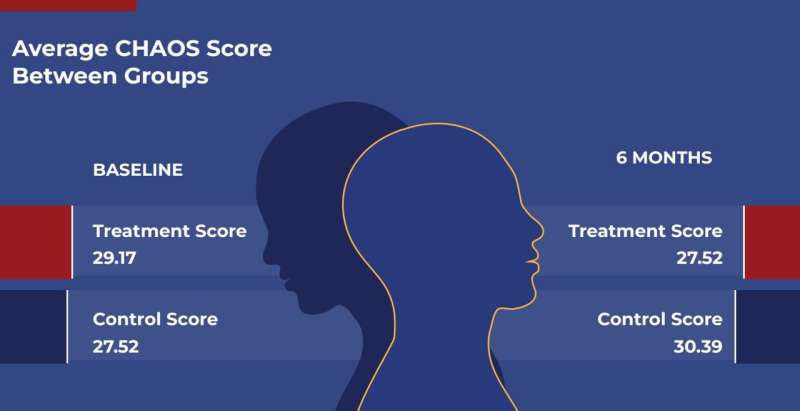This article has been reviewed according to Science X's editorial process and policies. Editors have highlighted the following attributes while ensuring the content's credibility:
fact-checked
trusted source
proofread
How guaranteed income affected a New Jersey city

In a report authored by the Center for Guaranteed Income Research (CGIR) at Penn's School of Social Policy & Practice (SP2), findings from the Paterson Guaranteed Income Pilot Program (GIPP) reveal connections between unconditional cash and recipients' quality of life, financial well-being, ability to balance their time, and feelings of belonging.
Based in Paterson, New Jersey, and organized by Mayor Andre Sayegh and a task force, GIPP provided 110 randomly selected individuals and families with $400 monthly cash payments from July 2021 to June 2022.
"I am elated with the favorable outcomes observed in the Paterson Guaranteed Income Pilot Program (GIPP). Despite the obstacles presented by the pandemic, GIPP has markedly enhanced the quality of life and financial stability for its participants," says Paterson Mayor Andre Sayegh.
"These noteworthy results will play a crucial role in influencing future policies geared toward prioritizing the well-being of our community. I sincerely appreciate the Center for Guaranteed Income Research and all individuals who played a part in the success of Paterson's Guaranteed Income Pilot Program."
Paterson, a former industrial powerhouse, has long been an exemplary city for justice-centered work. In the 1800s, it served as a key stop on the Underground Railroad, and in the 1900s, it was home to the Paterson Silk Strike, which served as a turning point in labor rights history. Marked by rich racial and ethnic diversity, Paterson was one of the earliest cities to experiment with unconditional cash for residents experiencing deep poverty during the COVID-19 pandemic.
"The $400 monthly cash allowance, while not a panacea, offered financial relief for many participants and served as a valuable blueprint for future policy initiatives—particularly in a diverse city landlocked by extraordinary wealth and exorbitant housing costs," write authors Elizabeth DeYoung, Nidhi Tandon, Catarina Neves, Amy Castro, and Stacia West of CGIR.
Part of a series of CGIR publications collectively named The American Guaranteed Income Studies, the report found that despite the unprecedented challenges of the pandemic and nationwide inflation, participants benefited from guaranteed income in several ways:
- Enhanced quality of life—Guaranteed income mitigated participants' household chaos, mental distress, and food insecurity.
- Improved financial well-being—The treatment group demonstrated improved financial resilience and stability, savings, and ability to cover unexpected expenses.
- Increased agency over their time—Guaranteed income bettered recipients' ability to balance paid work and unpaid caregiving.
- Boosted feelings of social connection, reciprocity, and belonging—As the program generated a spirit of mutual support and community interdependence, participants experienced less social isolation and loneliness.
Those selected to receive the guaranteed income earned below New Jersey's living wage of $30,000 for single individuals and $88,000 for families. Researchers measured participant impact against a randomized control group of 131 other county residents who did not receive payments.
The unconditional nature of the guaranteed income provided participants the agency to spend the cash as they saw fit. One participant commented, "It's helped… ease my mind a little bit because I know I don't have to work a 13-hour shift … once a week just to make ends meet. Just so that my kids can get a proper education."
The report acknowledges that many of the gains experienced by participants were temporary—the guaranteed income was not enough to mitigate the effects of the significant stressors facing the Paterson community beyond the period of the pilot program. However, the researchers argue that the experience created the conditions for long-term goal-setting and risk-taking and fostered a sense of connection and empowerment.
The authors write, "While the pilot's findings highlight persistent gaps and needs, they also underscore the program's role both as a catalyst for change and a beacon of hope amid adversity."
More information: Report: static1.squarespace.com/static … +Report_02.16.24.pdf
Provided by University of Pennsylvania





















